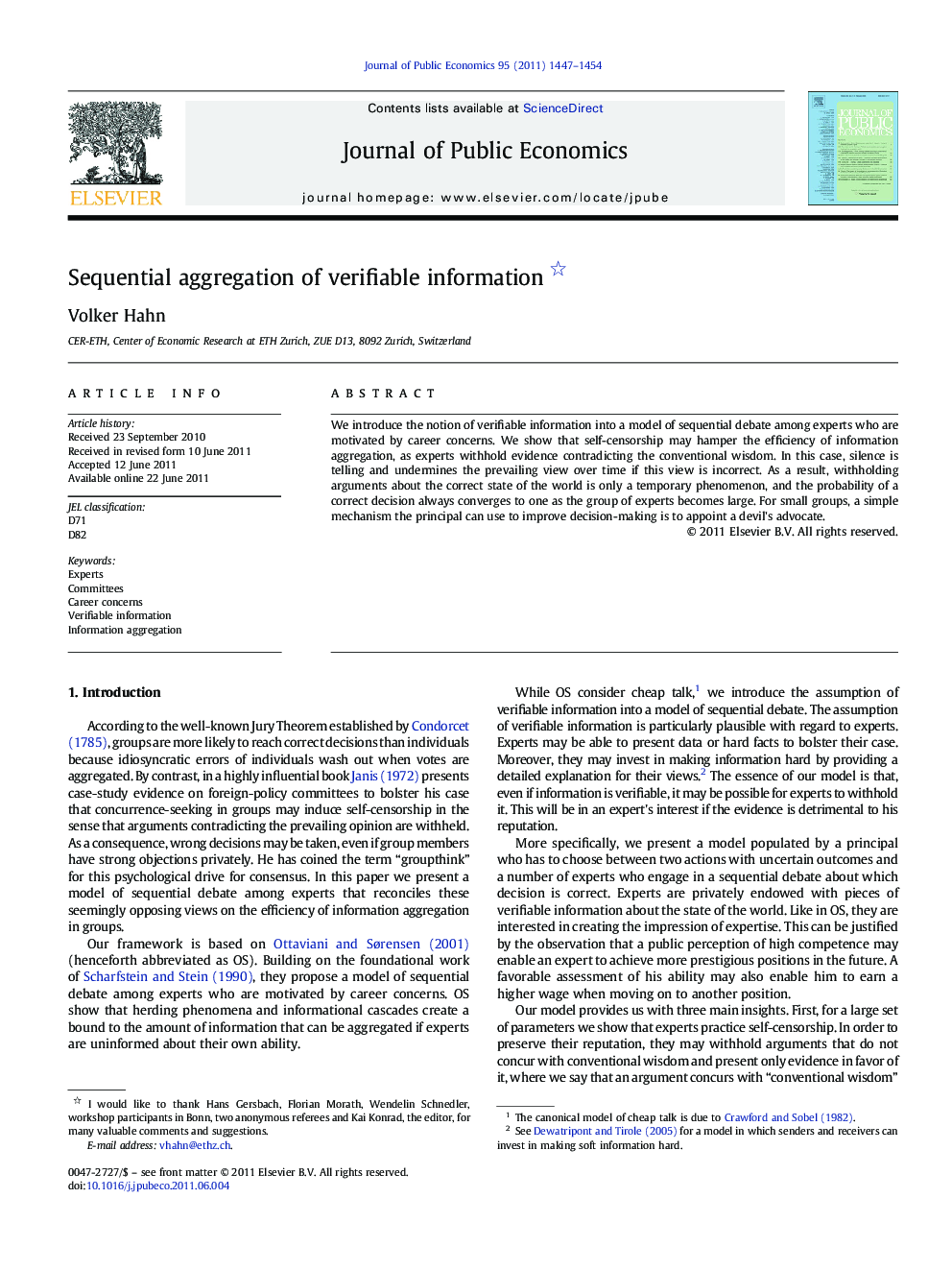| Article ID | Journal | Published Year | Pages | File Type |
|---|---|---|---|---|
| 969034 | Journal of Public Economics | 2011 | 8 Pages |
We introduce the notion of verifiable information into a model of sequential debate among experts who are motivated by career concerns. We show that self-censorship may hamper the efficiency of information aggregation, as experts withhold evidence contradicting the conventional wisdom. In this case, silence is telling and undermines the prevailing view over time if this view is incorrect. As a result, withholding arguments about the correct state of the world is only a temporary phenomenon, and the probability of a correct decision always converges to one as the group of experts becomes large. For small groups, a simple mechanism the principal can use to improve decision-making is to appoint a devil's advocate.
Research highlights► Introduces verifiable information into a model of sequential debate among experts. ► Incentives to suppress private information more severe if information verifiable. ► Experts’ silence is informative and undermines a wrong consensus. ► The Condorcet Jury Theorem extends to our setting. ► Appointing a devil's advocate may improve committee performance.
